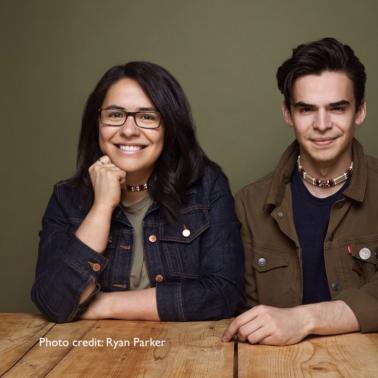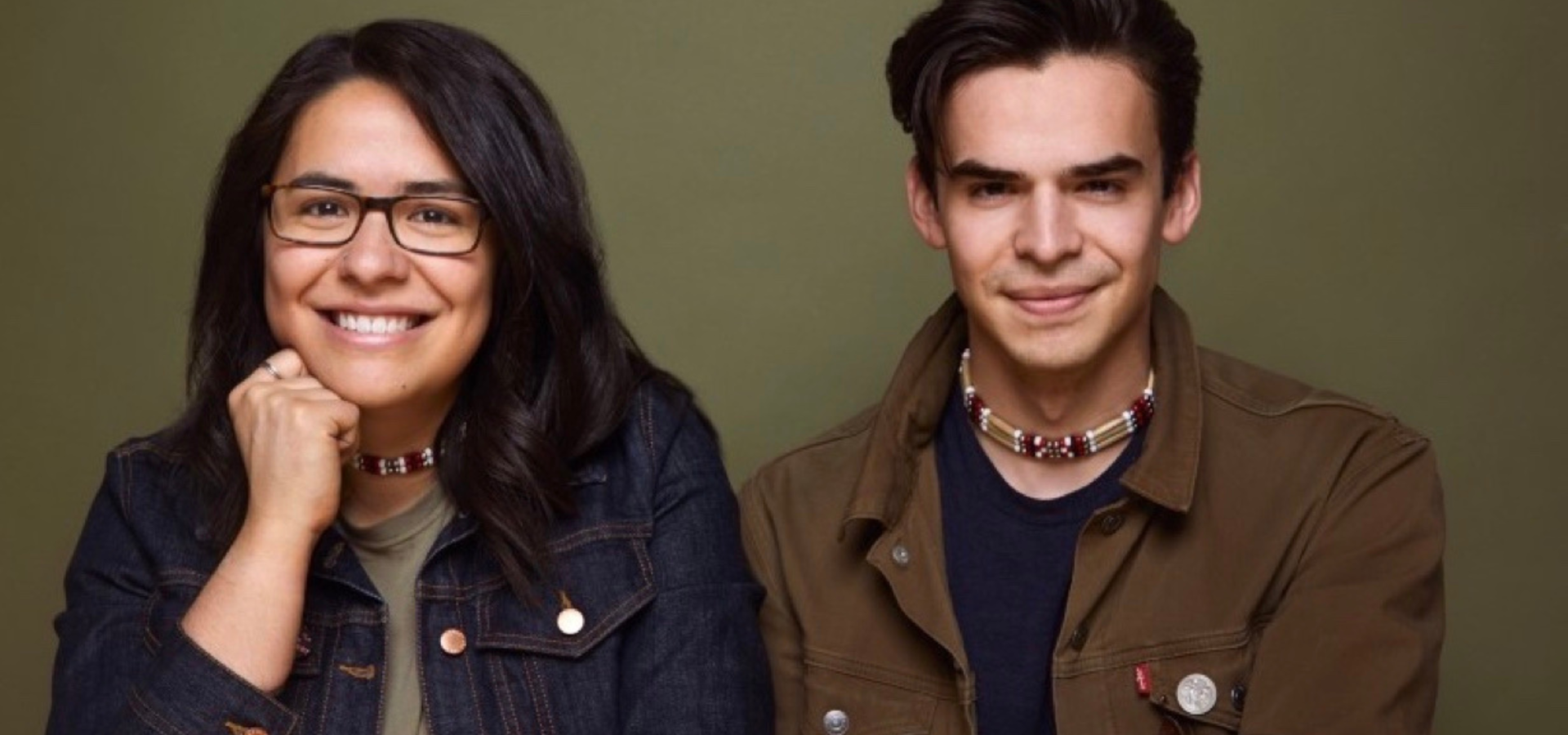
REFLECTION REPORT by Amelia Bonenfant, Communications Coordinator, Initiatives of Change Canada
After seven sessions of Circles on Indigenous Worldviews, this series now plans to look to the future in line with IofC Canada’s focus this year of Building Bridges Across Generations.
Intergenerational indigenous relationship building and collaboration comes in many forms, according to Lewis Cardinal, and his daughter and son Jacquelyn and Hunter Cardinal, our latest Indigenous guest speakers at the Initiatives of Change Canada event on Jan. 25th 2023.. To foster relationships there are certain things that must happen for both elders and youth to learn and grow from each other’s knowledge. It was said that sharing stories is good medicine, when we learn how to share stories, we learn more about each other, and that is the first thread to building bridges across divides. A key piece of decolonization work is ensuring we are building intergenerational relationships and creating spaces for people to gather and be heard.
So what do indigenous and non-indigenous people need to stop doing to foster intergenerational relationships?
The Cardinals expressed how there’s a need to stop creating a hierarchy of knowledge. The preconceived belief that youth must always be the ones learning from elders was sincerely discussed between father, daughter and son. The beautiful message that arose in this discussion was about how each person holds a piece of knowledge, a valuable small piece of the bigger puzzle. We need to recognize that everyone has something to say, and to decolonize the process of listening, it is incredibly important for youth to be able to feel like they can share their experiences and be heard. When youth don’t have the space to share their knowledge, no one can benefit. This will require that we work on our listening skills, which have been shaped by colonization.
It is believed by Lewis and others that knowledge itself has spirit, and that who the knowledge comes through should not matter. An important part of fostering intergenerational relationships is giving young people the space to let the spirit of knowledge work, so they can share their unique gifts to create medicine for the world. The hierarchy of knowledge in our systems continues to create challenges for youth to share the spirit of knowledge.
The message from Lewis, Jacquelyn and Hunter was indeed eye opening for all. The youth of each generation have a key role in teaching because of the different reality they experience and live. Jacquelyn mentioned that “sometimes it seems like each indigenous person grew up in a different country”. Youth and elders are often sitting on different sides of the circle with so much potential to learn from each other, coming from very different perspectives from their experiences.
So what are some good examples of intergenerational relationship building?
The Cardinals shared that creating room for humour is a great start to relationship building. It is important to allow our humanity, humour and emotion into the sharing process of good and difficult topics. The practice of always staying serious while speaking of ancestors, the past or coming together divides us. “Humour creates a sense of belonging instead of a burden of legacy” said Hunter, which the Cardinals expressed as a key element to building trust, decolonizing the process of gathering, sharing and listening. Lewis said, “the opposite of colonization is connection.” Therefore, participating in communal activities that create an atmosphere of acceptance and allow our humanity to come through is key for people to feel comfortable sharing the truth. This is where the healing of colonization can continue and stronger intergenerational relationships can be formed.
So as we continue to work on decolonizing ourselves, we must share stories to youth “not to put them asleep, but to wake them up”. Jacquelyn explained that seeing ourselves with a seven-generation perspective, where we are the accumulation of the past seven generations that made decisions with us in mind, can help us make the right changes for the next seven generations. By keeping in mind how the past generations cared for us before they knew us, we can dream for the next ones to come, and build better relationships for the future.
